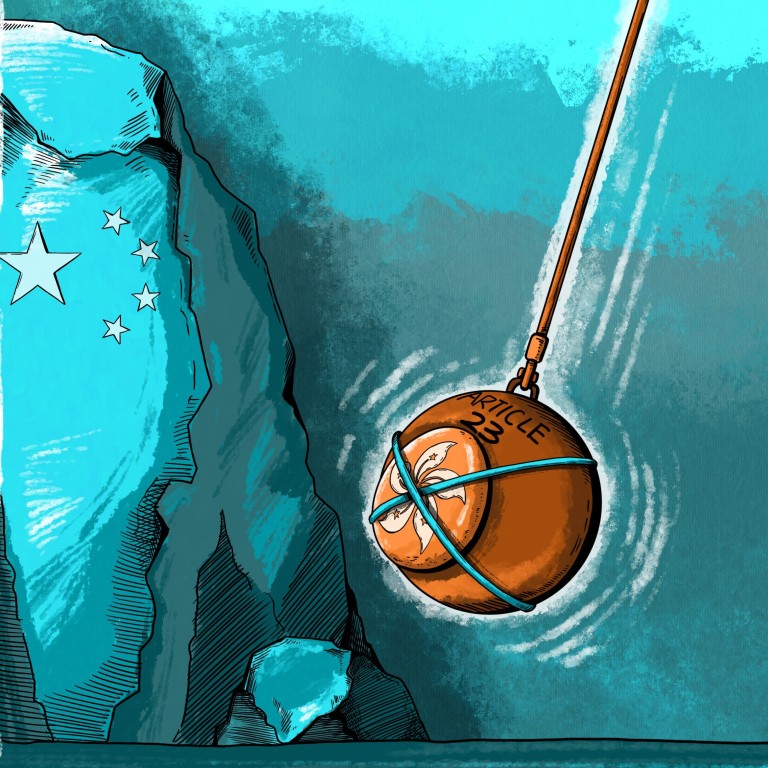
Exclusive | Caught between China and the United States: why Hong Kong is the latest battleground in the rivalry and Article 23 could be the tinder to the explosive relationship
- Premier’s remarks expected to spark lively debate, set tone for future action on Hong Kong
- Beijing bristling over protests, lack of national security law, US interference in city’s autonomy
This is the third in a nine-part series examining the issues Chinese leaders face as they gather for their annual “two sessions” of the National People’s Congress and Chinese People’s Political Consultative Conference this week. This story looks at the expectations for Beijing’s policy on Hong Kong.
As China’s political elite begins its annual parliamentary sessions this Friday, there will be more to the Hong Kong issue than meets the eye this time.
Every year, the city’s observers methodically pore over the Chinese premier’s work report, looking for the one-paragraph mention of China’s two special administrative regions: Hong Kong and Macau. Every word is weighed and analysed to detect the slightest change in Beijing’s policy towards the city.
So far, the messages have been unwaveringly consistent. There have been subtle changes of tone here and there, but by and large the premier routinely reaffirms the “one country, two systems” principle that grants the two cities the unique status of a high degree of autonomy.
This year, however, things could be different, sources have told the South China Morning Post. Not only did the long-running social unrest that struck the city over the previous year thrust it into the national spotlight, the intense rivalry between China and the US has also given the Hong Kong issue a new urgency.
Expulsions, clashes as pro-establishment bloc takes control of Legco committee
Beijing sees the law as a safeguard to the country’s sovereignty and national security. The opposition camp in Hong Kong, however, fears it could become a tool to curb the city’s freedoms and autonomy.
Ever since, the Chinese government has been playing a patient game. While it never fails to remind the Hong Kong public that it is the city’s constitutional duty to introduce the law, the pressure has been relatively restrained – at least in public.
The changing political reality over the past year has suddenly made this issue a top priority on the national agenda.
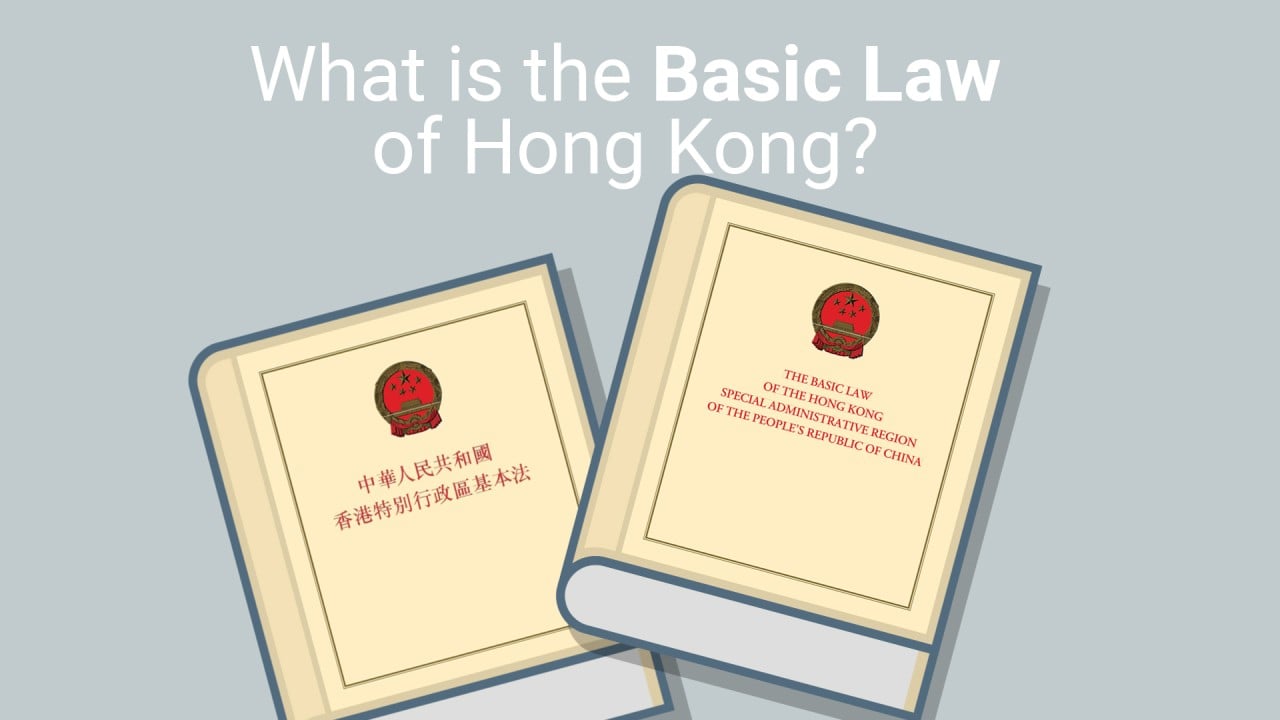
02:31
What is the Basic Law of Hong Kong?
Since last month, senior mainland officials overseeing Hong Kong affairs have been drumming up the call for the city to take action.
“Xia expressed concern that Hong Kong was becoming a loophole in China’s national security and stressed that Hong Kong should not become the weak link,” the source said.
Most observers and government sources expect the national security legislation to be discussed at this year’s parliamentary sessions. The real question is in what format and to what extent.
A hard way to do this is to pass the national security law and add it to Annex III of the Basic Law, which exempts certain national laws that are not applicable in Hong Kong from being applied here.
Another less damaging option is for the NPC Standing Committee, the country’s top legislative body, to reinterpret some colonial ordinances and turn them into a de facto national security law, a source familiar with the discussion said.
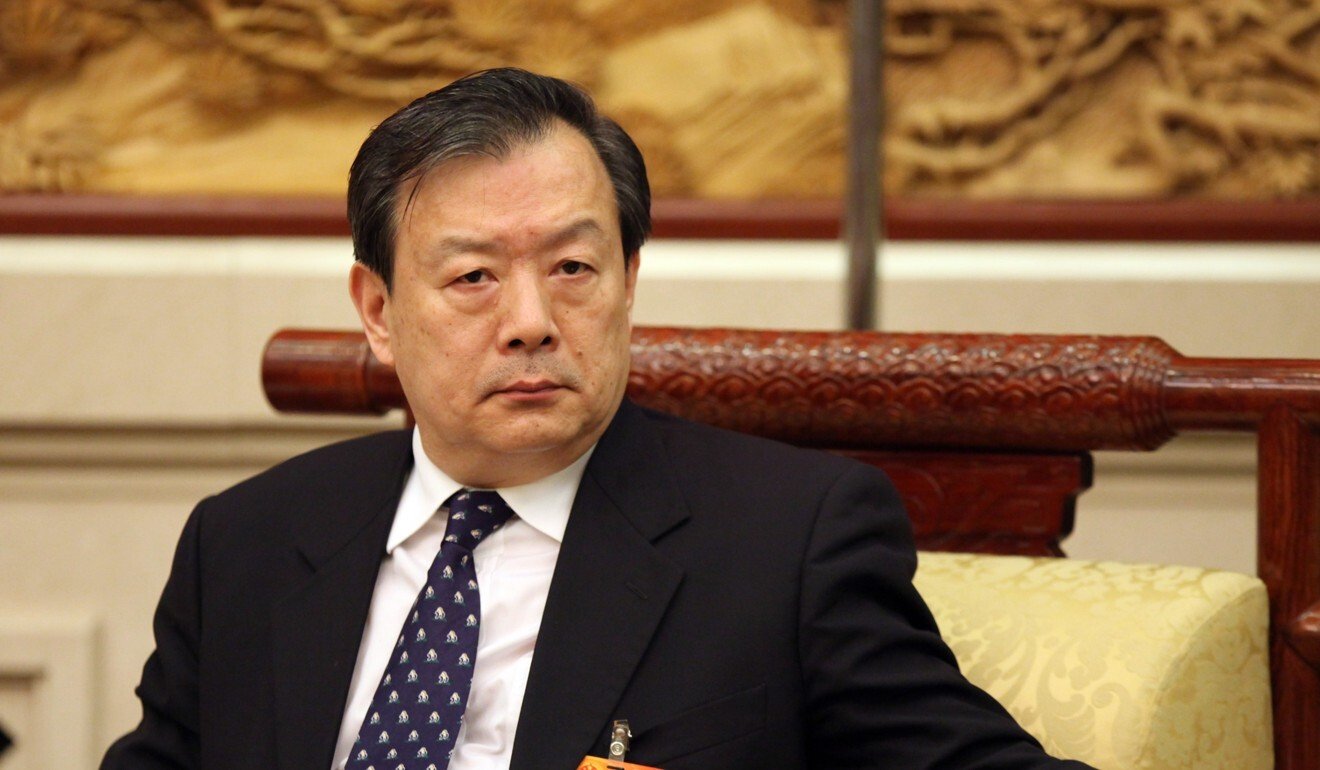
Both options are likely to cause an uproar in the city, spooking foreign investors and stoking up tensions with the West, several diplomatic sources said.
The Post was told that the postponement was due to growing concerns in Washington that Beijing might force through the legislation of the national security law during the parliamentary sessions.
Setting course in a storm: China’s legislature to meet after two-month delay
While the US does not oppose the principle of enacting a national security law in Hong Kong, it must be done in accordance with the spirit of the Sino-British Joint Declaration that promises to allow Hong Kong people to govern themselves, a diplomatic source said.
Last November, Washington passed the Hong Kong Human Rights and Democracy Act (HRDA) ostensibly to protect the city’s autonomous status and the civic rights of its residents. Under the act, the State Department will regularly review the state of human rights and freedoms in Hong Kong and issue a report annually.
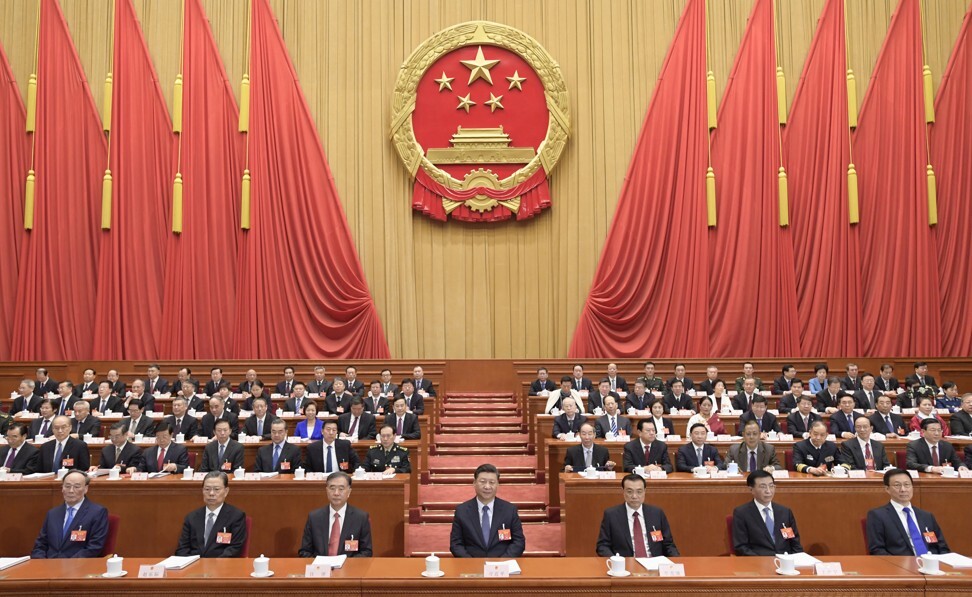
Contrary to common belief, the report will not decide whether the US will strip Hong Kong’s special status as a separate trading entity from the rest of China, nor will it trigger any sanction against the city or its officials, the Post was told.
But a damning report could create a spark in the explosive anti-China political environment in Washington, leading to more actions from the White House or Capitol Hill.
Former US consul general to Hong Kong Kurt Tong said “the language in the report will no doubt be stronger than last year”. He said the report would not directly trigger but may “reinforce the possibility of the US government to start taking away Hong Kong’s differential treatment in specific areas, but not in other areas”.
One such possible area is the export controls of technology. A part of HRDA specifically asks for a report on Hong Kong’s enforcement of technology trade controls.
Chinese parliament likely to ignore citizens’ calls to investigate coronavirus
“My guess is that the decision will be made at a high level, at the White House, since there are probably differences of opinions between people inside the administration,” Tong said.
Another source said the stripping away of Hong Kong’s special status would be counterproductive.
“If you take away the special status, the most affected ones will be Hong Kong people. Our goal should not be to punish Hong Kong people. The deterrence measures should be aimed at Beijing.”
The source also denied rumours that the US government had a sanctions list targeting individuals in Hong Kong.

A separate source said sanctions against Hong Kong would happen “only if [US President Donald] Trump really wants to p*** off Xi [Jinping] to spice things up for domestic US political reasons”.
“Xinjiang and Tibet provide better legal justifications for sanctions than Hong Kong, and are with less political risk. And the US government still hasn’t pulled the trigger on those,” he said.
But the consensus is that any rash action from Beijing on the city would “greatly fuel tensions and damage the bilateral relationship further”.
Hong Kong opposition activists vow to fight on despite prospect of stiffer sentences
It is understood that Washington has quietly communicated its concerns to Beijing. The question is how far Beijing is ready to go.
Lau Siu-kai, vice-chairman of the semi-official Chinese Association of Hong Kong and Macau Studies, said: “In the past, the central government took into account the views of Western countries when it handled Hong Kong affairs, but now Beijing believes Western countries are using Hong Kong to undermine China’s national security.
“When it comes to Hong Kong affairs, safeguarding national security and asserting its authority over Hong Kong have now taken precedence over Hong Kong’s contribution to China’s economy.”
Stanley Ng Chau-pei, a Hong Kong deputy to the NPC, advocated in 2015 for the body to apply the mainland’s national security law to Hong Kong. The law was endorsed that year. At the time, friends and foes alike were cold to his idea.
When he goes to Beijing this week, Ng plans to propose that the legislature enact a separate national law on national security tailor-made for Hong Kong and then include it with other national laws currently listed in Annex III of the Basic Law.”
Coronavirus: Xi defends China and WHO response at World Health Assembly
He is counting on more support this time. Earlier, Tam Yiu-chung, Hong Kong’s sole representative on the NPC Standing Committee, urged the government to put national security legislation on the Legco agenda and launch a consultation process in September. Tam said the bill should be passed “no later than August next year”.
He added: “The central government has been worried about the situation in Hong Kong since the social unrest began.”
He said some actions by the protesters “challenged the bottom line” of the one country, two systems principle.
While many Beijing experts agreed with the need to address the issue, most believed the two sessions would not be an optimal window of opportunity.
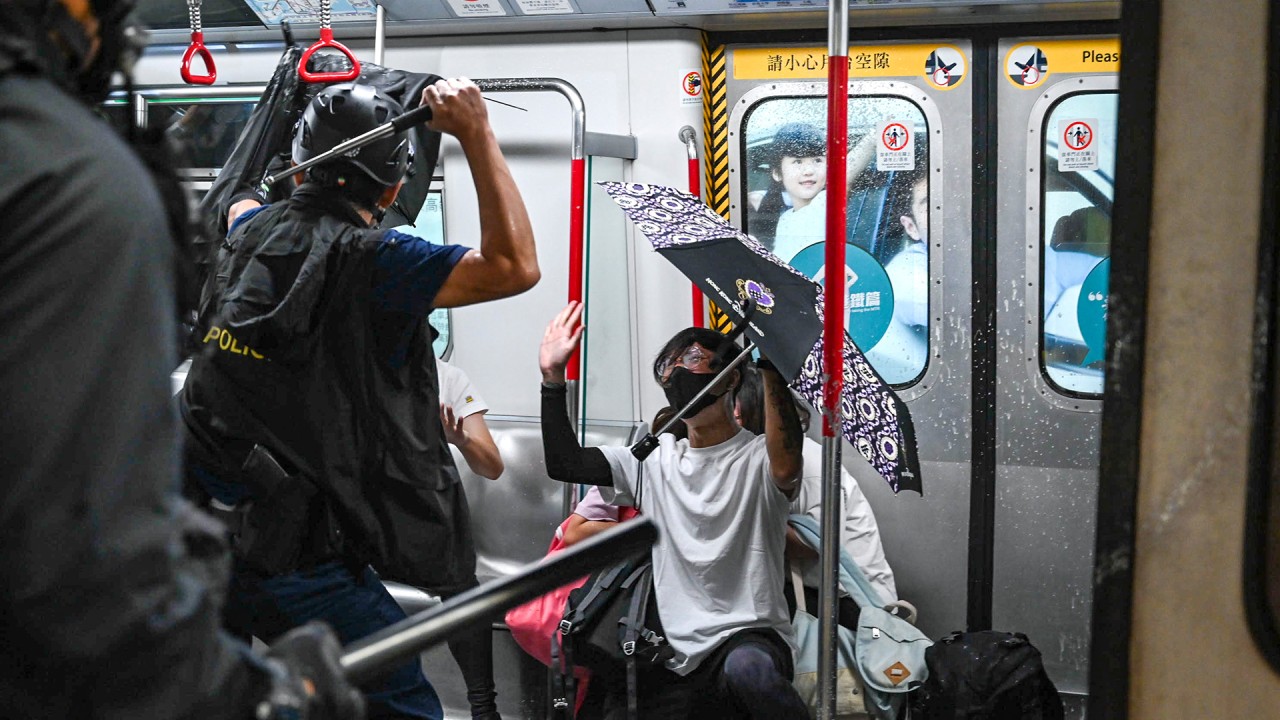
03:05
HK protests: Watchdog says police use of force met international guidelines but has room to improve
Tian Feilong, associate professor at the Law School of Beihang University in Beijing, said while the central government would talk up the issue, it would not rush the legislation, given that there were other pressing strategic priorities.
Tian also believes that the central government may want to wait for the results of the Hong Kong Legco election in September first.
Hong Kong is not a top priority at the two sessions. If we do something drastic now, it will only provide ammunition for the US to stir up trouble
Managing the delicate relationship with the US – particularly in the run up to the American presidential election – was also critical, Song said.
“I expect to see tougher language and more elaboration of our principles [on Hong Kong]. But this is not an occasion for concrete measures,” he said.
“The central government’s commitment to the one country, two systems principle remains unchanged but Beijing will be more ready to use its power to interpret the Basic Law.”

Song said the interpretation of the Basic Law would be a more “reasonable step” than resorting to Annex III. Both options would require huge amounts of preparation and planning and could not be rushed through at this year’s two sessions.
Another observer with close links to Beijing also said the central government would not make a move until the conditions were ripe.
Chinese parliament likely to ignore citizens’ calls to investigate coronavirus
“Hong Kong is not a top priority at the two sessions. If we do something drastic now, it will only provide ammunition for the US to stir up trouble,” the observer said.
“The opposition side [in Hong Kong] may wish for Beijing to do something rash so that they can use this to rally support for the coming election. But there is no reason that we have to do it now. Saving jobs and reviving the economy is more important.”

Beijing is now watching closely to see how the upcoming Legco election may pan out.
“If the opposition fails to get the majority in the Legco, Beijing will let Hong Kong introduce its own national security law. The central government will step in only if the opposition wins the majority of seats in the Legco,” Tian said.
Executive Council member Ip Kwok-him, a Hong Kong deputy to the NPC, said “we’ll definitely have opportunities to share views on the issue in group discussions with mainland officials during the NPC session, but it’s the Hong Kong government’s task to fulfil its constitutional responsibility [to enact national security legislation].”
The next story in the series will examine the expectations for and implications of China’s military budget. All the stories in the series can be viewed at https://series.scmp.com/china-crossroads/
Help us understand what you are interested in so that we can improve SCMP and provide a better experience for you. We would like to invite you to take this five-minute survey on how you engage with SCMP and the news.










